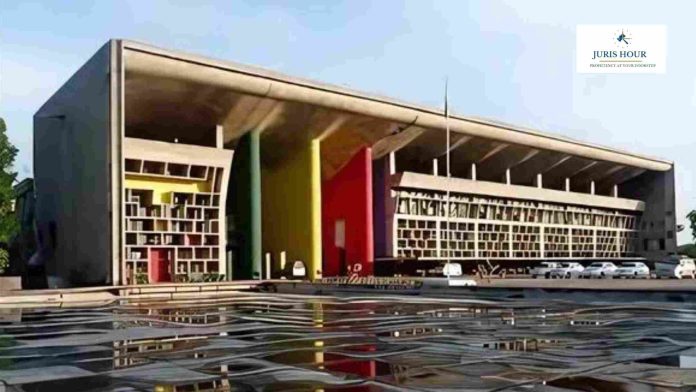The Punjab and Haryana High Court has held that the Debt Recovery Tribunal (DRT) has the jurisdiction to condone delay if the applicant demonstrates sufficient cause under Section 5 of the Limitation Act.
The bench of Chief Justice Sheel Nagu and Justice Sanjiv Berry has jointly read Section 17(7) and 37 of the SARFAESI Act with Section 24 of the RDB Act, 1993, and reaffirmed that Section 17 of the SARFAESI Act provides a statutory remedy to borrowers to challenge measures taken by secured creditors but does not expressly bar the application of the Limitation Act.
The Bench held that the Limitation Act applies to applications under Section 17 of the SARFAESI Act. Importantly, the Court clarified that the DRT does have jurisdiction to condone delay if the applicant demonstrates sufficient cause under Section 5 of the Limitation Act.
The bench stated that the remedy of limitation Act 1963 if available to the Banks/Financial Institutions under section 19 of the Act of 1993 should also be available to an applicant/aggrieved person, including the borrower under section 17 of the SARFAESI Act.
The petitioners-borrowers, who have defaulted in the repayment of loan, leading to initiation of SARFAESI proceedings, which were challenged by the petitioners-borrowers in the jurisdictional Debts Recovery Tribunal came to be dismissed on the ground of having been filed beyond the period of limitation of 45 days prescribed under section 17 of SARFAESI Act.
The issue raised was whether the provisions of the Limitation Act are applicable to an application filed u/s 17 of the Securitisation and Reconstruction of Financial Assets and Enforcement of Security Interest Act, 2002?
The court noted that in particular Section 17(1), it is obvious that while prescribing a period of 45 days for making an application under section 17 by the borrowers/aggrieved persons, the SARFAESI Act does not prohibit in express terms filing of an application beyond 45 days.
The court held that the SARFAESI Act does not eclipse the provisions of the Act of 1993, which is evident from a plain reading of Section 37, which stipulates that the provisions of SARFAESI Act would be in addition to, and not in derogation of various Acts including the Act of 1993.
“Taking cue from Section 17(7) of SARFAESI Act, Section 24 of Act of 1993 provides that Limitation Act of 1963 shall apply to an application made to the Tribunal. Meaning thereby, any application made before the DRT under the Act of 1993 would be amenable to the provisions of Limitation Act, 1963. Thus, a conjoint reading of Section 17(7) of SARFAESI Act and Section 24 of Act of 1993 vividly reveal the statutory intent that an application u/s 17(1) of SARFAESI Act can take advantage of Limitation Act, 1963,” the court said.
The court quashed the DRT order has directed that the DRT to afford an opportunity to the petitioners herein to file an application (if not filed already), seeking condonation of delay u/s 5 of Limitation Act, 1963 and thereafter consider the same in its right perspective and in accordance with law and if the cause of delay shown is found to be bona fide and justified.
Case Details
Case Title: M/S FAIR STYLE EMBROIDERY WORKS Versus DEBTS RECOVERY TRIBUNAL
Case No.: CWP-20243-2025 (O&M)
Date: 12.09.2025
Counsel For Petitioner: Rohit Suri, Advocate
Counsel For Respondent: Rajiv Joshi, Advocate
Read More: Income Tax Portal Glitch : Will ITR deadline be extended?

